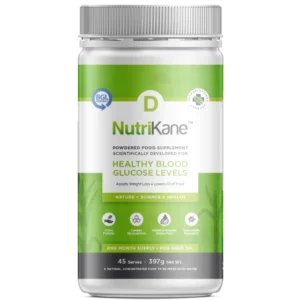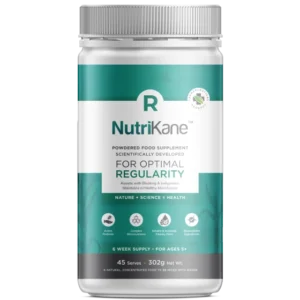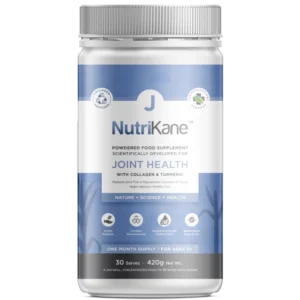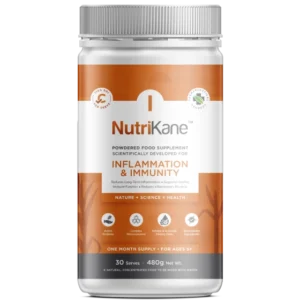If you are living with arthritis joint pain, you may be considering taking natural anti-inflammatory supplements to help with the pain.
While some supplements may be beneficial, you must be cautious when selecting a product because not all supplements are equal.
Natural anti-inflammatory supplements may contribute to increased nutrient intake, but this does not necessarily correlate to long-term improvement in joint health. This is due to many factors.
Arthritis and joint pain respond best to the ‘whole body approach.’
Lifestyle changes such as weight loss, exercise and using ‘Food as Medicine’ with anti-inflammatory, antioxidant-rich, prebiotic foods are incredibly beneficial. But you can also enhance this approach with targeted medical nutrition. It may just be your answer to managing the progression and intensity of inflammatory joint pain.
First, let’s look at some of the pros and cons of the most popular supplements on the market.
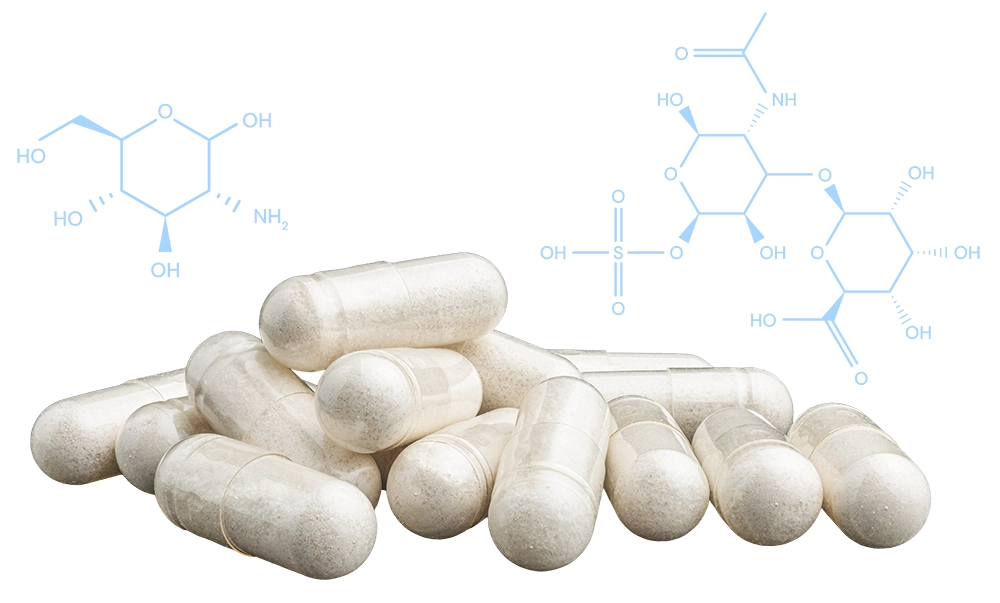
Glucosamine and Chondroitin
These supplements are found naturally in the cartilage of animals and in shellfish. They are used to make supplements for joint health and are often sold together.
Pros
- Glucosamine and chondroitin are naturally occurring compounds in the body and are essential for maintaining healthy joints. Glucosamine helps to rebuild cartilage, while chondroitin acts as a shock absorber.
- These supplements are widely available.
- They are generally well-tolerated and have few side effects.
Cons
- The efficacy of glucosamine and chondroitin for treating arthritis is not well established, and results from studies have been mixed.
- The supplements are expensive, and some people are advised to take them for several months before they might notice any benefit.
- Glucosamine and chondroitin can interact with medications, such as blood thinners, so it is important to consult a healthcare professional before starting this supplement.
- Possible side effects include digestive issues, skin reactions and allergic reactions.
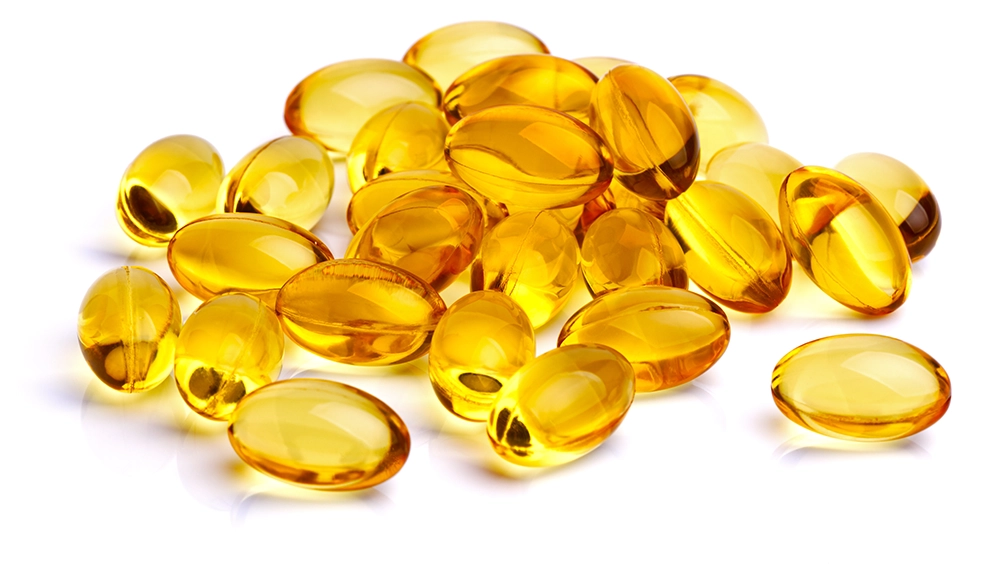
Omega-3 fatty acids
Omega-3 is found in fish oil supplements and certain types of fish, such as salmon and mackerel.
Pros
- Omega-3 fatty acids are a healthy fat that reduces inflammation throughout the body.
- They have been shown to have many health benefits beyond joint pain, including reduced risk of heart disease and depression.
- Omega-3 fatty acids are essential, which means the body can not produce them, so they must be obtained through supplementation or diet.
Cons
- Good quality fish oil supplements are expensive, and some users burp fish oil, which isn’t pleasant.
- The quality of omega-3 supplements can vary. You get what you pay for.
- The optimal dose of omega-3 fatty acids for anti-inflammatory effects is not well established, and it can be challenging to determine how much to consume.
- Some individuals experience side effects of upset stomach, diarrhoea, or a fish aftertaste.
- These supplements are not well absorbed by the body, so it is important to consume them in adequate amounts to achieve the benefits.
- There are sustainability concerns around the fish sources of omega-3 fatty acids due to overfishing and unsustainable fishing practices.
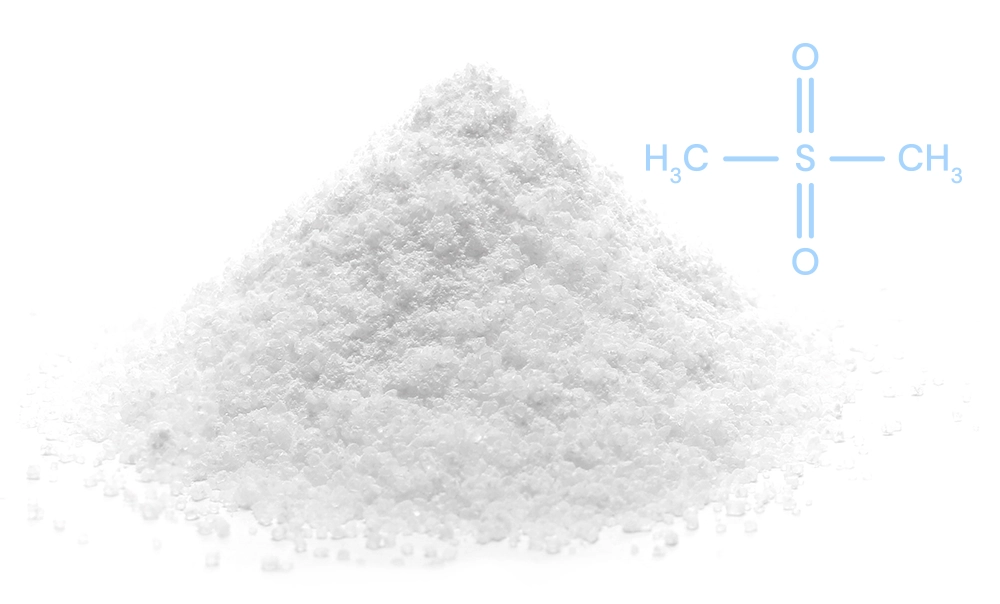
Methylsulfonylmethane (MSM)
MSM is a natural compound that is sold as a supplement.
Pros
- It is a naturally occurring compound shown in some studies to have anti-inflammatory effects.
- MSM has a good safety profile if taken in recommended doses and is generally well-tolerated.
Cons
- There is a lack of robust scientific evidence despite its popularity. Further research is needed to determine the safety and effectiveness as an anti-inflammatory.
- MSM may interact with certain medications, including blood thinners. Healthcare advice should be sought before starting this supplement.
- Some people may experience side effects such as digestive issues, skin, and allergic reactions.
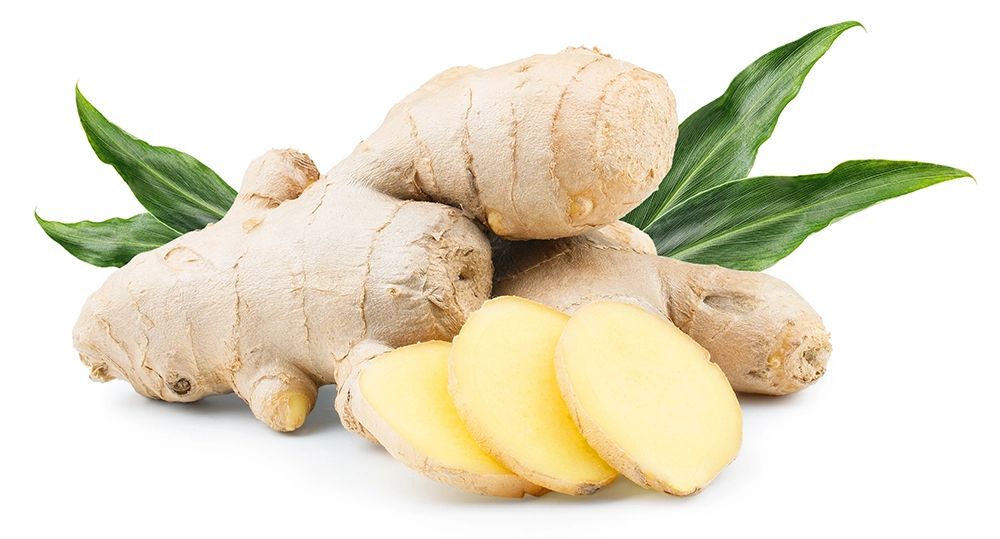
Ginger
Ginger supplementation can be found in powder, extract, tincture, capsules and oils.
Pros
- Ginger has been used for centuries as a natural remedy for pain and inflammation.
- Some studies have shown ginger has anti-inflammatory effects and can be effective in reducing pain and swelling.
- It is generally well tolerated, and there are minimal side effects.
- It is versatile and can be consumed in various forms.
- Ginger has a wide range of health benefits in addition to its anti-inflammatory effects, including reducing nausea, improving digestion and boosting brain function.
Cons
- Ginger may interact with certain medications, including blood-thinning drugs.
- There is no standard recommended dosage for ginger as an anti-inflammatory, so it is difficult to determine how much to take.
- The quality of ginger supplements can vary widely.
- It should not be used if you have gallstones, as it may increase bile flow.
- Some people may not experience the full anti-inflammatory effects of ginger or may experience side effects such as digestive discomfort or skin irritation.
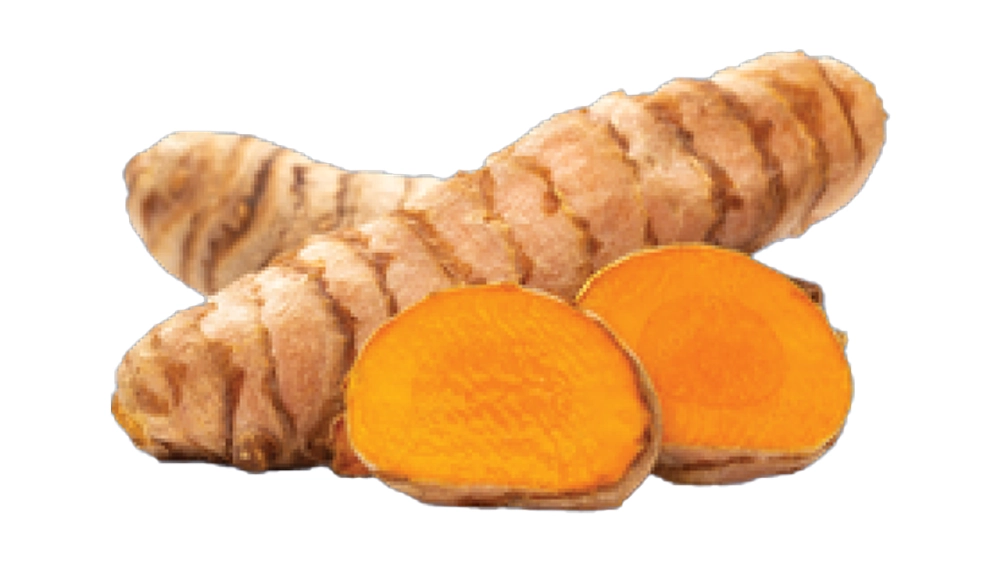
Turmeric
You can take turmeric in several forms, including capsules, tablets, powders, tinctures or gummies.
Pros
- Curcumin, the active ingredient in turmeric, has been shown to have potent anti-inflammatory effects. It is a popular natural remedy for arthritis, autoimmune diseases and other chronic pain conditions.
- In addition to its anti-inflammatory effects, curcumin has substantial antioxidant properties that help to protect cells from damage.
- It is a relatively safe supplement and well tolerated with few side effects when taken in recommended doses.
Cons
- There is a lack of standardisation in turmeric supplements. This means that the amount of curcumin in each supplement varies greatly, making it difficult to determine the appropriate dose for each individual.
- Curcumin is poorly absorbed in the body, which limits its effectiveness as an anti-inflammatory supplement unless combined with the appropriate amount of piperine (a compound of black pepper).
- Turmeric can interact with certain medications, including blood thinners and blood-sugar-lowering drugs.

Green Tea
Green tea is sold as a powder, tea, or supplement.
Pros
- Studies have shown that green tea contains polyphenols, which have anti-inflammatory effects and may be effective in reducing pain.
- Green tea is a known rich source of antioxidants, which help protect against oxidative stress and damage that contributes to inflammation.
- It is a multipurpose supplement as its anti-inflammatory benefits have been linked to various health benefits, including improved heart health, better brain function and weight loss.
Cons
- Green tea contains caffeine, which can cause side effects for some people, including insomnia and increased heart rate.
- The quality of green tea can vary, and it is important to choose high-quality supplements to ensure maximum benefits.
- While some evidence supports the anti-inflammatory benefits, more research is needed to fully understand its effects and optimal dosage.
- Green tea has a strong flavour that can repeat on people.

Resveratrol
Resveratrol is a natural compound found in the skin of red coloured fruits such as red grape marc and Queen Garnet plum powder – found in NutriKane I.
Pros
- Several studies have shown that resveratrol has anti-inflammatory effects and may be effective in reducing inflammation and pain.
- Resveratrol is a potent antioxidant that can help protect against oxidative stress and damage that contributes to inflammation.
- Resveratrol is found in red wine, grapes and NutriKane I.
- It is multipurpose with benefits linked to improved heart health, better brain function and a longer lifespan.
Cons
- The optimal dose of resveratrol for anti-inflammatory effects is not well established, and it can be challenging to determine how much to consume.
- The quality of resveratrol supplements can vary, and choosing a high-quality product is important to ensure maximum benefits.
- While evidence supports the anti-inflammatory benefits, more research is required to fully understand its effects and optimal dosage.
- Resveratrol is not found in large quantities in any single food source, making it difficult to consume in significant amounts unless taken with NutriKane I to enhance your nutritional intake through targeted medical nutrition.

Magnesium
Magnesium comes in powder, capsule, crystals for oral solution and tablet form.
Pros
- Magnesium is essential in numerous physiological processes, including regulating the immune system and reducing inflammation.
- It is widely available in food sources and supplements and easily incorporated into your diet.
- In addition to its anti-inflammatory effects, magnesium has been linked to various health benefits, including improved heart health, better sleep and reduced stress.
- Magnesium is generally considered safe for most people when taken as directed.
Cons
- The dosage is difficult to determine as it depends on age, sex and health status.
- Taking magnesium supplements on an empty stomach or in high doses can cause digestive side effects, including diarrhea, bloating and abdominal cramping.
- Some people have difficulty absorbing magnesium, making it less effective as an anti-inflammatory.
It is important to remember that the human body requires both macronutrients and micronutrients to remain healthy and grow. Many supplements contain micronutrients, but they may not be in forms that are easy to absorb. In addition, our bodies cannot absorb large doses of single nutrients on their own. They often need to absorb all nutrients from complex foods at once.
Nutrients that are required in groups are called co-factors. If the body does not have enough co-factors in the food, it will use up some of its own to try and absorb the vitamins and minerals more efficiently.
NutriKane is not a supplement. It is ‘Food as Medicine.’ At MediKane, we use foods to provide all the primary active ingredients in our products. Only supplementing the foods with vitamins that are effective through research.
Each NutriKane product has been scientifically developed to target modern health problems through careful ingredient selection and therapeutically analysed serving sizes. A single serving of a NutriKane product provides essential fibres, nutrients, trace elements, and minerals clinically proven to improve gut and microbiome health. A healthy gut supports all bodily functions, including decreasing inflammatory responses.

